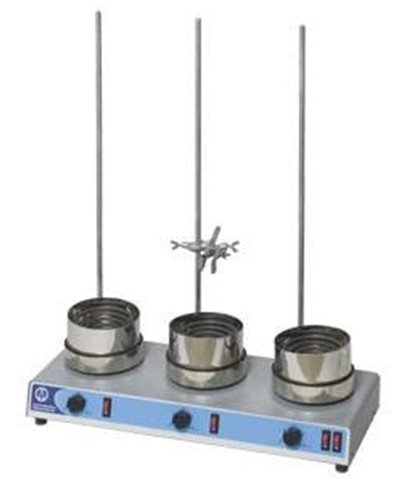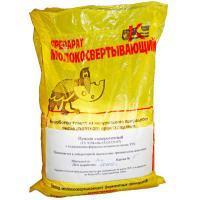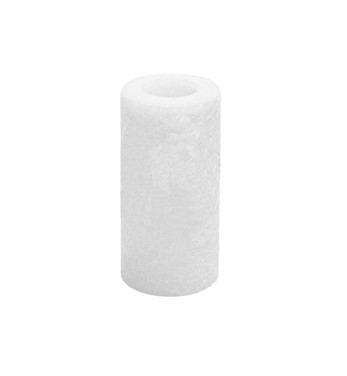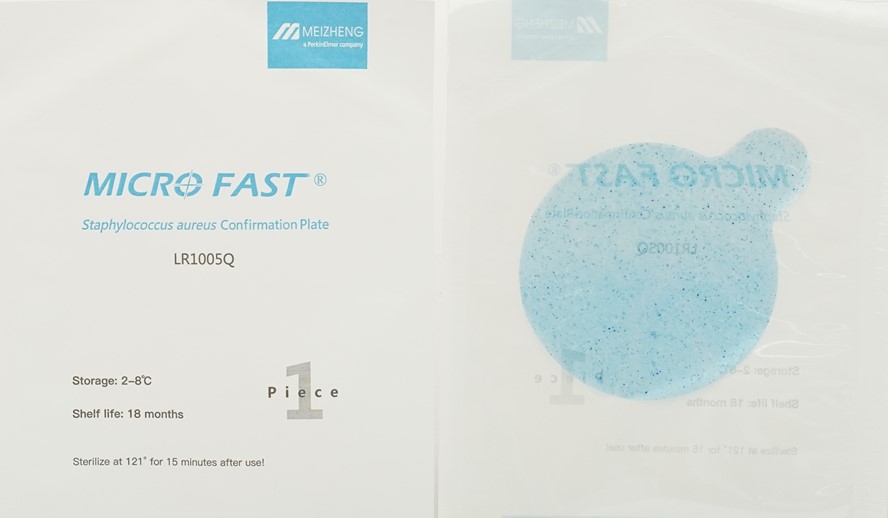Secrets of meat cuisine: why is beef from Tatarstan transported by trucks to Moscow?
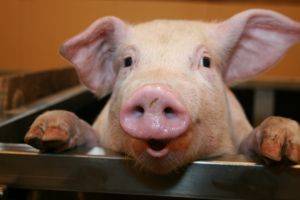
 PIONEER MEIZHENG BIO-TECH (5 in 1) JC0726 / Rapid tests for determining the residual amount of Bacitracin, ansamycins, clindamycin, spiramycin, florfenicol in milk, whey
PIONEER MEIZHENG BIO-TECH (5 in 1) JC0726 / Rapid tests for determining the residual amount of Bacitracin, ansamycins, clindamycin, spiramycin, florfenicol in milk, whey PIONEER MEIZHENG BIO-TECH (5 in1) JC0871/ Rapid tests for the determination of the residual amount of β-lactams, tetracyclines, chloramphenicol, streptomycins, ceftiofur in milk, whey.
PIONEER MEIZHENG BIO-TECH (5 in1) JC0871/ Rapid tests for the determination of the residual amount of β-lactams, tetracyclines, chloramphenicol, streptomycins, ceftiofur in milk, whey.
Beef prices in Tatarstan have increased by 20% this year. Producers attribute the significant growth to higher costs. At the same time, a paradoxical situation has developed in the republic - restaurateurs do not buy MEAT in the region, but in Moscow, because it is cheaper there. Why is this happening, the correspondent of "Tatar-inform" understood.
"When buying meat, we pay 20-30% of its price for it to reach the store"
Since the beginning of the year, the price of beef has increased significantly in Tatarstan. If the cost of a kilogram of chicken increased by 0.2%, to 162 rubles, and pork, on the contrary, fell by 1.5% to 276 rubles, then "red meat" rose in price by 19.6%. According to the Ministry of Agriculture and Food of the Republic of Tatarstan, as of July 22, a kilogram of beef costs 483.6 rubles.
"A slight decrease in production volumes within 1-3% is noted for pork and sausages. In the production of meat, offal and poultry, on the contrary, there is an increase in the range of 1-7%. The situation at enterprises is stable, they work as usual. There are no significant problems available," the ministry told Tatar-inform.
The cost of meat is affected by the cost of fuel, energy, the operation of equipment, the wages of enterprises and commercial expenses, the ministry said.
“Another significant part of the price is the cost of logistics and trade. When buying meat, we pay 20-30% of its price for it to reach the store and hit the shelves. This is quite a lot, but we cannot do without it. retail chains take part of this amount for themselves.They spend this money, in particular, on renting retail premises, salaries to their employees, refrigeration equipment.Another 7-8% in the price of meat is the share of value added tax.The only way to reduce the cost of meat is by lowering its quality or saving on logistics," the ministry explained the increase in prices.
"Raw materials have risen in price since February"
In public catering enterprises, meat dishes have risen in price by an average of 10% due to rising meat prices, said Galina Sharafutdinova, General DIRECTOR of the Association of Restaurateurs and Hoteliers of Tatarstan.
"Restaurateurs studied each item. There was no such thing as a price increase on the entire menu. Based on a thorough analysis of selected dishes, the increase was at the level of 10%," she said.
According to her, local restaurants "virtually did not touch" the prices of poultry dishes. However, the prices for beef meat dishes were raised slightly.
“Raw materials have been rising in price since February. We kept prices to the detriment of our economy for three months. But we gradually revised our menu: someone formed a new offer, someone raised prices to a level so as not to lose the loyalty of guests,” Sharafutdinova said.
She noted that Russian entrepreneurs are actively looking for local products that are produced within the country. In particular, in Tatarstan.
"We are ready for restaurants to have the same history of products used in this or that dish as with wine. That is, they are tied to the place of origin. For example, there is already a dish from Muslyumovsky goose on the menu of restaurants," farm beef from the Laishevsky district. "The more we point to the manufacturer, the more we will contribute to the development of the local product and agricultural producers," the expert suggested.
"Muscovites come and immediately buy whole trucks"
In Tatarstan, local restaurateurs buy meat from Moscow because local farmers either don't have enough or the cost is high, Sharafutdinova said.
“We have noticed that the products of local producers often go to Moscow, and then we buy them from there at a price that may be lower than from local farmers. This, it would seem, is a paradox. the economy, which is produced on the territory of the republic, remained inside the market and first filled it, and then went to Moscow," she said.
Sharafutdinova noted that local farmers sell meat to Moscow because they buy large quantities there.
"Muscovites come and immediately buy whole trucks, unlike us. We buy from 100 kg, because logistics greatly affects the final cost for the entrepreneur in this situation. And Moscow is a very capacious market. We understand manufacturers, it is more profitable for them to give a large volume and get their money. And these large companies make a small margin, and due to the turnover, they have the opportunity to sell to us at a price lower than that of the farmer. Secondly, not everyone has a logistics system built in, delivering is also a big expense" she reasoned.
The representative of the restaurateurs added that local restaurateurs also work with Moscow companies due to the lack of meat. "We cooperate with the companies Miratorg, East-West and Sweet Life. These federal suppliers bring meat from different regions of RUSSIA. Unfortunately, there is not enough farm meat for everyone in Tatarstan. We would be happy to work only for local product, we hope to increase the number of livestock. I think that agriculture will develop in this direction and soon the meat of local producers will cover our need," Sharafutdinova complained.
She continued: “Moscow can make more interesting proposals, but given that all subsidies to support peasant farms come from the region, it would still be fair to leave products for the local market of Tatarstan. We, in turn, in cafes and restaurants could say that the dish prepared from meat of a local producer. We very much hope that large holdings of meat products will turn towards local entrepreneurs, and will not think only about momentary profit. The motto "consume Tatarstan" should become the norm," she said.
In the fall, meat will win back the decline
Chairman of the Association of Farmers and Peasant Farmsteads of Tatarstan Kamiyar Baitemirov said that republican farmers sell meat to Moscow at a higher cost than for the local market.
“In order for them [restaurateurs of the Republic of Tatarstan] to buy from us, we specially transported them to our agricultural consumer cooperatives of various types, including meat, where slaughter and processing are carried out. I don’t know why this is so. these are inter-farm agreements with Moscow. But our farmers sell meat to Moscow, on the contrary, at a higher price than they sell here. Their arguments are very contradictory," he objected.
According to him, the price of meat has risen because there has been a general rise in prices for those goods used by agriculture. "If we take building materials, their price has increased by 2-2.5 times, fertilizers have risen in price by one and a half times, metal - by 2.5-3 times. And what should we do?" - Baitemirov asked a rhetorical question.
He stressed that about 200 farms are added annually in Tatarstan, now there are more than 4,000 of them.
“There can be no shortage of meat in Tatarstan. I can say that there are 262,000 heads of cattle in private farms alone, and about 80,000 in peasant farms,” Baitemirov said.
He noted that while prices have suspended growth, as supply in the market exceeds demand. “Now it’s such a season that meat doesn’t “walk” too much on the market, because people are on vacation and departures. As the chairmen of agricultural consumer cooperatives that are engaged in slaughtering and deep processing of meat tell me, meat has become cheaper,” the expert clarified.
At the same time, he noted that the situation is different for the year as a whole – the rise in prices is significant. “If we take the year as a whole, then meat has risen in price. We now have more offers than demand, so the meat is cheap. In the fall, meat will be sold at the price at which it was in the first or second quarter of this year,” the HEAD believes. associations.
Read together with it:
- О самых распространенных причинах пожаров рассказали в МЧС2 октября, Минск. О самых распространенных причинах пожаров рассказал начальник главного управления надзора и профилактики МЧС Дмитрий Турчин на "Предупреждение чрезвычайных ситуаций в осенне-зимний период. Профилактика пожаров и гибели людей от них", которая прошла в БЕЛТА. "В республике наблюдается рост количества пожаров на 7,7%, и на 1......
- Фермер из Увата получил грант на строительство мясоперерабатывающего заводаПолученные средства будут направлены на строительство производственных мощностей для переработки мяса абердин-ангусов и овец породы дорпер. В планах фермерши - начать выпуск высококачественной говядины, баранины и полуфабрикатов, а также обеспечить местное население Уватского округа продукцией собственного производства с 2......







